QuestionDear Shelley,
six days ago I purchase a beautiful 9 week old (as of today) female German Shepherd. Once in awhile I pick her up to take her outside for "business" (I sometimes perceive she has to go and don't want an accident. As I pick her up, she will pee a bit. A neighbor came over the other day and though she was very excited to get close to this person, she peed a bit as she was being petted. Kira seems to be timid by breading as both parents seemed very friendly towards me instead of being "aloof" as I have seen most Shepherds. My concern is the peeing will get worse as she ages. I don't scold her for the peeing, but there are times I need to lift her to get down stairs or in and out of the car until she gets a bit bigger. I will appreciate any advice... Thank You, Don
Answer
Hi Don,
The expert you directed your message to declined to answer it, and it ended up in an unanswered message "pool" where any of the experts in the category dogs could choose to answer it. That is how I came to read your message.
The urination problem is probably due to the fact you got your puppy about a week ago. She will improve (most puppies outgrow submissive/excitement urination as they mature and gain confidence in social situations) but arriving to her new home is pretty scary to a shy girl.
Avoid the stimuli that seems to lead to urination. Everyone (including you and your friends, veterinary caregivers, etc.) who interacts with your puppy should avoid doing anything that causes urination. For example, puppies with submissive urination should not be rushed toward when greeted, instead they should be allowed to approach on their own. When greeting your puppy speak softly and avoid prolonged eye contact, and kneel down to avoid towering your puppy. Ignoring puppies with excitement/submissive urination for the first 5 minutes after you arrive home may prevent over-excitement too. Don't reach out for your puppy- especially over her head, that's very dominating to a dog. Your puppy should be petted under the her chin, or on her chest or on the side of her neck.
Food or toy rewards can be useful too. Reward your puppy with a treat during the greeting when she is not displaying any submissive signs. If she begins to pee adopt a happy voice and try to change the subject. Suggest something she enjoys. For example, you could say "Where's your ball? Let's play ball" or 'Come on, let's go outside to play".
Allowing a submissive puppy to win the game will boost her confidence. A good confidence building exercise is a game of tug of war. Play with an old towel, an old sock or a soft toy. A word of warning: Be aware that too rough a game of tug of war can damage your puppy's teeth. Try not to get too rough during a tug of war game.
Grooming builds confidence. Groom your puppy daily. Brush her and handle her for a few minutes every day (especially her feet). He will soon learn to enjoy it and will realize that you mean him no harm.
Slowly and gradually introduce her to as many new things as you can. Socialize her to get used to kids, cats, vacuum cleaners, lawn mowers, other people and any other new sounds and experiences you can think of. This is particularly important for your puppy, since you say both of her parents are shy dogs.
Puppies with submissive urination should not be punished. Some pups are so sensitive that even upset facial expressions or tense body language from owners is enough to elicit urination. The best way to avoid punishing a dog or puppy is to guide them toward appropriate behaviors. For example, instead of yelling "no" when their dogs jump on them, owners should teach them to sit. Dogs and puppies should be told the right thing to do, something that will result in praise and a reward, and not shouted or punished. Reducing/eliminating the amount of punishment will help build the confidence of a puppy with submissive urination behavior. Other good confidence builders for puppies include positive reinforcement/reward basic training for obedience or dog sports (such as agility, or flyball, etc.).
When your puppy is about 3 months old, enrolling in a puppy kindergarten class at a local dog obedience school will help build her confidence, and also get her started on learning to follow at least basic commands.
I hope that helps!
Good luck,
Patti

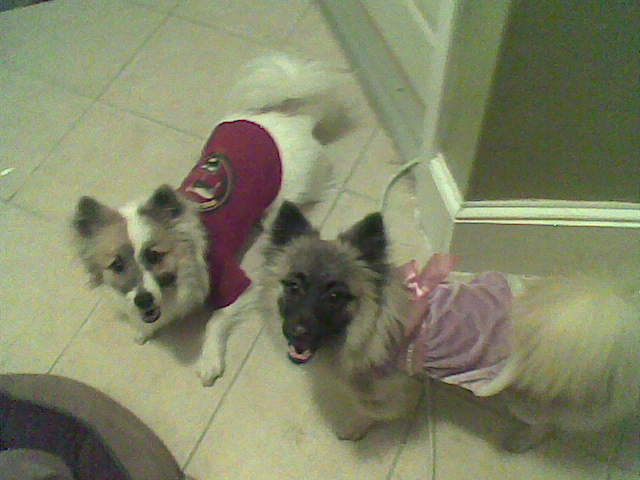 TRAINING POMERANIANS
Question
chichi&coco
I have two Pomeranian-mixed do
TRAINING POMERANIANS
Question
chichi&coco
I have two Pomeranian-mixed do
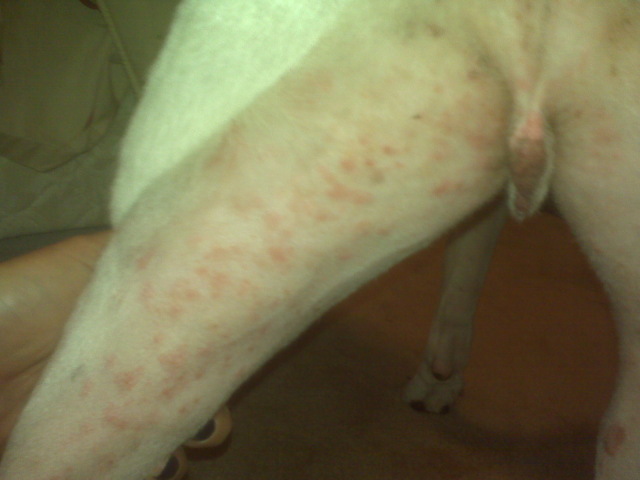 Large dog with possible poison ivy
Question
Guero
My poor dog has led a rough life to date
Large dog with possible poison ivy
Question
Guero
My poor dog has led a rough life to date
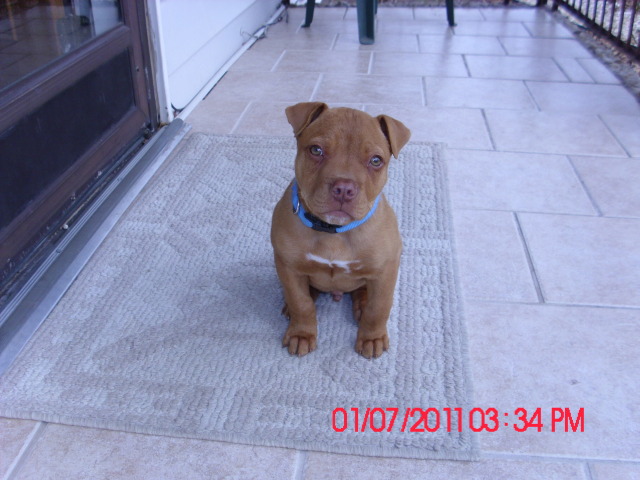 puppy medical concerns
Question
Rusty
my 11 week old red nose pit bull at time
puppy medical concerns
Question
Rusty
my 11 week old red nose pit bull at time
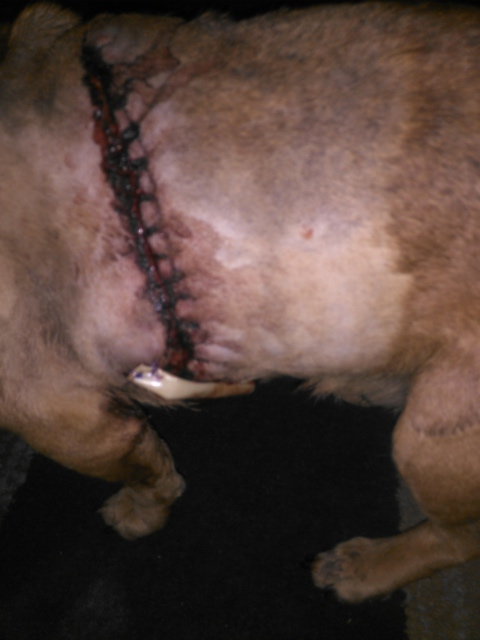 tumor on my dog
Question
stitched up second tim tumor
My d
tumor on my dog
Question
stitched up second tim tumor
My d
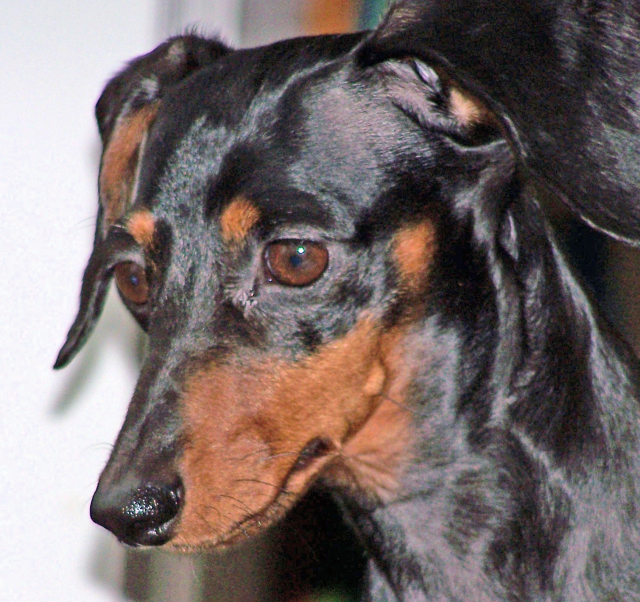 Mini-Daschund Question
Question
Baby
I got a rescus mini about 6 years ago. &n
Mini-Daschund Question
Question
Baby
I got a rescus mini about 6 years ago. &n